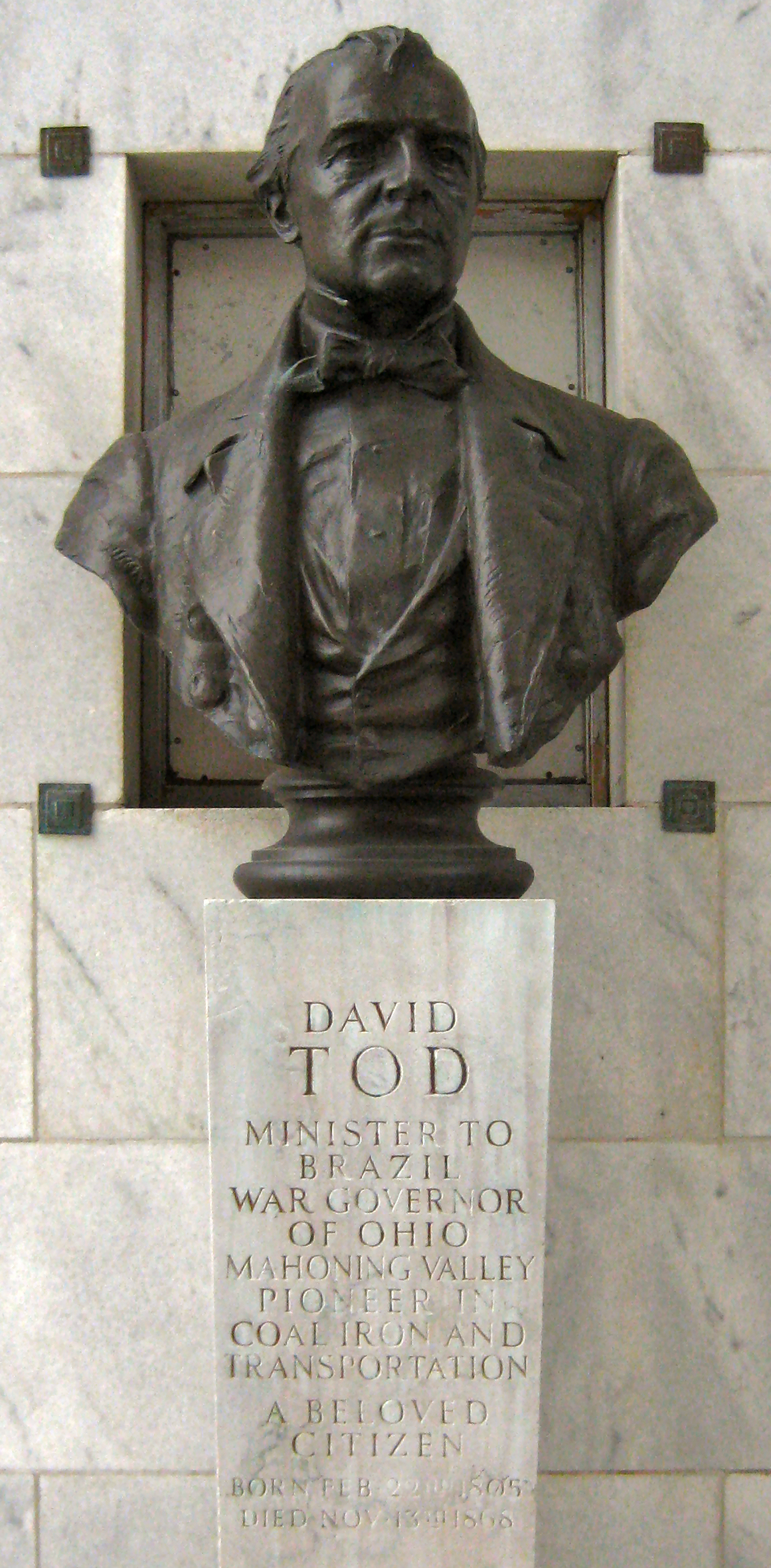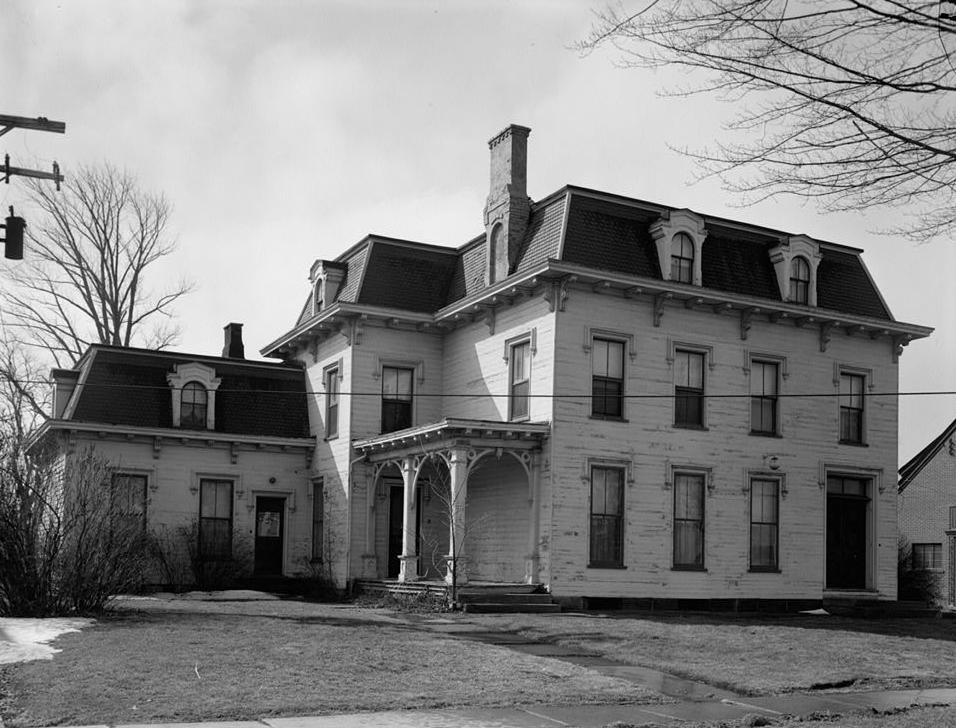|
War Democrat
War Democrats in American politics of the 1860s were members of the Democratic Party who supported the Union and rejected the policies of the Copperheads (or Peace Democrats). The War Democrats demanded a more aggressive policy toward the Confederacy and supported the policies of Republican President Abraham Lincoln when the American Civil War broke out a few months after his victory in the 1860 presidential election. Ohio In the critical state elections in Ohio in 1862, the Republicans and War Democrats formed a Unionist Party. This led to victory over the Democrats, led by Copperhead Clement Vallandigham. However, it caused trouble for Radical Republican Senator Benjamin Wade's reelection bid. War Democrats opposed Wade's radicalism, and Wade refused to make concessions to their point of view. He was narrowly reelected by the legislature. In 1863, the Ohio gubernatorial campaign drew national attention. Ohio Republicans and War Democrats were dissatisfied with the ... [...More Info...] [...Related Items...] OR: [Wikipedia] [Google] [Baidu] |
Andrew Johnson
Andrew Johnson (December 29, 1808July 31, 1875) was the 17th president of the United States, serving from 1865 to 1869. He assumed the presidency as he was vice president at the time of the assassination of Abraham Lincoln. Johnson was a Democrat who ran with Lincoln on the National Union ticket, coming to office as the Civil War concluded. He favored quick restoration of the seceded states to the Union without protection for the newly freed people who were formerly enslaved. This led to conflict with the Republican-dominated Congress, culminating in his impeachment by the House of Representatives in 1868. He was acquitted in the Senate by one vote. Johnson was born into poverty and never attended school. He was apprenticed as a tailor and worked in several frontier towns before settling in Greeneville, Tennessee. He served as alderman and mayor there before being elected to the Tennessee House of Representatives in 1835. After briefly serving in the Tennessee Senate ... [...More Info...] [...Related Items...] OR: [Wikipedia] [Google] [Baidu] |
1868 Democratic National Convention
The 1868 Democratic National Convention was held at Tammany Hall in New York City between July 4, and July 9, 1868. The first Democratic convention after the conclusion of the American Civil War, the convention was notable for the return of Democratic Party politicians from the Southern United States. Venue The convention was held at the new Tammany Hall building on East 14th Street in Manhattan, New York City, which replaced the organization's earlier headquarters. For the convention, the hall was elaborately decorated. Convention officers Horatio Seymour, the former governor of New York, served as the permanent chairman of the convention. Each state delegation had a vice president and secretary to the convention. Henry L. Palmer of Wisconsin served as the convention's temporary chairman, after the convention voted on the opening day to appoint him after he was nominated by Democratic National Committee Chairman August Belmont. Events of the convention On July 4, 1868, coi ... [...More Info...] [...Related Items...] OR: [Wikipedia] [Google] [Baidu] |
1868 United States Presidential Election
The 1868 United States presidential election was the 21st quadrennial presidential election, held on Tuesday, November 3, 1868. In the first election of the Reconstruction Era, Republican nominee Ulysses S. Grant defeated Horatio Seymour of the Democratic Party. It was the first presidential election to take place after the conclusion of the American Civil War and the abolition of slavery. It was the first election in which African Americans could vote in the reconstructed Southern states, in accordance with the First Reconstruction Act. Incumbent president Andrew Johnson had succeeded to the presidency in 1865 following the assassination of Abraham Lincoln, a Republican. Johnson, a War Democrat from Tennessee, had served as Lincoln's running mate in 1864 on the National Union ticket, which was designed to attract Republicans and War Democrats. Upon accession to office, Johnson clashed with the Republican Congress over Reconstruction policies and was impeached and nearly remov ... [...More Info...] [...Related Items...] OR: [Wikipedia] [Google] [Baidu] |
Reconstruction Era
The Reconstruction era was a period in American history following the American Civil War (1861–1865) and lasting until approximately the Compromise of 1877. During Reconstruction, attempts were made to rebuild the country after the bloody Civil War, bring the former Confederate states back into the United States, and to redress the political, social, and economic legacies of slavery. During the era, Congress abolished slavery, ended the remnants of Confederate secession in the South, and passed the 13th, 14th, and 15th Amendments to the Constitution (the Reconstruction Amendments) ostensibly guaranteeing the newly freed slaves (freedmen) the same civil rights as those of whites. Following a year of violent attacks against Blacks in the South, in 1866 Congress federalized the protection of civil rights, and placed formerly secessionist states under the control of the U.S. military, requiring ex-Confederate states to adopt guarantees for the civil rights of fre ... [...More Info...] [...Related Items...] OR: [Wikipedia] [Google] [Baidu] |
United States House Of Representatives
The United States House of Representatives, often referred to as the House of Representatives, the U.S. House, or simply the House, is the lower chamber of the United States Congress, with the Senate being the upper chamber. Together they comprise the national bicameral legislature of the United States. The House's composition was established by Article One of the United States Constitution. The House is composed of representatives who, pursuant to the Uniform Congressional District Act, sit in single member congressional districts allocated to each state on a basis of population as measured by the United States Census, with each district having one representative, provided that each state is entitled to at least one. Since its inception in 1789, all representatives have been directly elected, although universal suffrage did not come to effect until after the passage of the 19th Amendment and the Civil Rights Movement. Since 1913, the number of voting representative ... [...More Info...] [...Related Items...] OR: [Wikipedia] [Google] [Baidu] |
United States Senate
The United States Senate is the upper chamber of the United States Congress, with the House of Representatives being the lower chamber. Together they compose the national bicameral legislature of the United States. The composition and powers of the Senate are established by Article One of the United States Constitution. The Senate is composed of senators, each of whom represents a single state in its entirety. Each of the 50 states is equally represented by two senators who serve staggered terms of six years, for a total of 100 senators. The vice president of the United States serves as presiding officer and president of the Senate by virtue of that office, despite not being a senator, and has a vote only if the Senate is equally divided. In the vice president's absence, the president pro tempore, who is traditionally the senior member of the party holding a majority of seats, presides over the Senate. As the upper chamber of Congress, the Senate has several powers o ... [...More Info...] [...Related Items...] OR: [Wikipedia] [Google] [Baidu] |
1864 United States Presidential Election
The 1864 United States presidential election was the 20th quadrennial presidential election. It was held on Tuesday, November 8, 1864. Near the end of the American Civil War, incumbent President Abraham Lincoln of the National Union Party easily defeated the Democratic nominee, former General George B. McClellan, by a wide margin of 212–21 in the electoral college, with 55% of the popular vote. For the election, the Republican Party and some Democrats created the National Union Party, especially to attract War Democrats. Despite some intra-party opposition from Salmon Chase and the Radical Republicans, Lincoln won his party's nomination at the 1864 National Union National Convention. Rather than re-nominate Vice President Hannibal Hamlin, the convention selected Andrew Johnson of Tennessee, a War Democrat, as Lincoln's running mate. John C. Frémont started to run as the nominee of the new Radical Democracy Party, which criticized Lincoln for being too moderate on the issu ... [...More Info...] [...Related Items...] OR: [Wikipedia] [Google] [Baidu] |
David Tod
David Tod (February 21, 1805 – November 13, 1868) was an American politician and industrialist from the U.S. state of Ohio. As the 25th governor of Ohio, Tod gained recognition for his forceful and energetic leadership during the American Civil War. A Democrat who supported the war effort, Tod helped to maintain a fragile alliance between the state's Republicans and War Democrats and took steps to secure Ohio's borders. In 1863, the state's pro-Union party failed to nominate Tod for a second term because of his tepid support for the abolition of slavery and his unpopularity among the state's myriad political factions. After completing his two-year term as Ohio governor, Tod turned down an invitation to serve in the government of President Abraham Lincoln as Secretary of the Treasury, citing poor health. Tod died of a stroke in 1868, three years after the end of the war and was interred in Oak Hill Cemetery (Youngstown, Ohio). Early life Tod was born in Youngstown, Ohio, to ... [...More Info...] [...Related Items...] OR: [Wikipedia] [Google] [Baidu] |
Benjamin Wade
Benjamin Franklin "Bluff" Wade (October 27, 1800March 2, 1878) was an American lawyer and politician who served as a United States Senator for Ohio from 1851 to 1869. He is known for his leading role among the Radical Republicans.Benjamin Wade ''American Battlefield Trust''. Retrieved February 13, 2022. Had the 1868 impeachment of U.S. President Andrew Johnson led to a conviction in the Senate, as [...More Info...] [...Related Items...] OR: [Wikipedia] [Google] [Baidu] |
Radical Republican
The Radical Republicans (later also known as "Stalwarts") were a faction within the Republican Party, originating from the party's founding in 1854, some 6 years before the Civil War, until the Compromise of 1877, which effectively ended Reconstruction. They called themselves "Radicals" because of their goal of immediate, complete, and permanent eradication of slavery, without compromise. They were opposed during the War by the Moderate Republicans (led by President Abraham Lincoln), and by the pro-slavery and anti-Reconstruction Democratic Party. Radicals led efforts after the war to establish civil rights for former slaves and fully implement em ... [...More Info...] [...Related Items...] OR: [Wikipedia] [Google] [Baidu] |
Clement Vallandigham
Clement Laird Vallandigham ( ; July 29, 1820 – June 17, 1871) was an American politician and leader of the Copperhead faction of anti-war Democrats during the American Civil War. He served two terms for Ohio's 3rd congressional district in the United States House of Representatives. In 1863, he was convicted by an Army court martial for publicly expressing opposition to the war and exiled to the Confederate States of America. He ran for governor of Ohio in 1863 from exile in Canada, but was defeated. Vallandigham died in 1871 in Lebanon, Ohio, after accidentally shooting himself in the abdomen with a pistol, while representing a defendant in a murder case for killing a man in a barroom brawl in Hamilton. Early life Clement Laird Vallandigham was born July 29, 1820, in New Lisbon, Ohio (now Lisbon, Ohio), to Clement and Rebecca Laird Vallandigham. His father, a Presbyterian minister, educated his son at home. [...More Info...] [...Related Items...] OR: [Wikipedia] [Google] [Baidu] |


.jpg)






